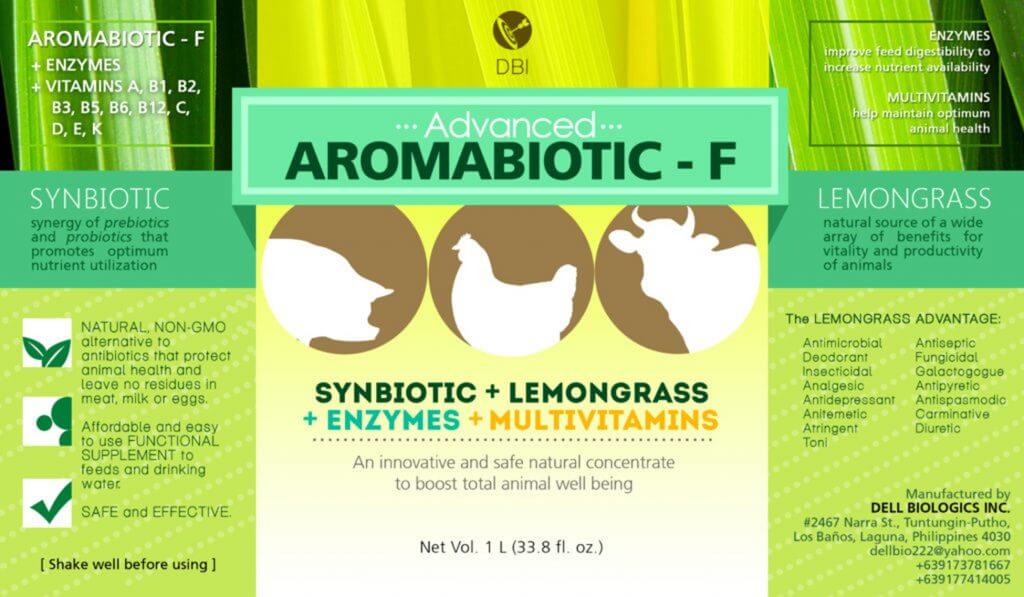In recent years, we have seen a continuous increase in the intensity of animal production. Farmers are primarily geared towards achieving good production outcomes and high-quality products of animal origin that will be attractive to consumers because of their nutritional, dietary, and health benefits. At present, consumers are also looking for organic food or organic feed additives, which guarantee them high nutritional quality.
Probiotics, prebiotics, and synbiotics
Taken into consideration is the use of probiotics, prebiotics, and synbiotics. Probiotics are live microorganisms such as bacteria, molds, and yeasts that are good for the digestive system. In the digestive tract of animals, they help in the proliferation of helpful microorganisms and increase enzymatic activity; thus, having a positive effect on the development of the animals. On the other hand, prebiotics is compounded in food that induces the reproduction and activity of probiotics. Studies have shown that the addition of prebiotics to feed has inhibited the development of pathogenic microorganisms in the digestive tract and stabilized the amount of E. Coli, a pathogen causing diarrhea in animals.
Synbiotic is the combined action of probiotics and prebiotics which is beneficial to the host by increasing the survival and deposition of viable microbiological nutritional supplements in the gastrointestinal tract. This action stimulates the growth and/or metabolism of beneficial live microorganisms. Their joint action on the animal body is much more effective than the use of probiotics or prebiotics alone.
Enzymes as a feed additive
Advancement in animal health and nutrition also led to the use of enzymes in animal feed. Various enzymes have been used to improve the efficiency of feed-stuff utilization. There are specific enzymes that degrade food for better faster nutrient absorption, resulting in an increased weight of livestock. Enzyme supplements can improve profits significantly since it reduces the time needed to reach the desired weight of the livestock and increases the volume of meat produced. In addition to these, consumers also take into account multivitamins and minerals to help maintain animal health and immunity.
The technology behind AromaBiotic-F
Dell Biologics, Inc (DBI) formulated AromaBiotic-F, a synbiotics made up of fermentation products from plants, enzymes, multivitamins, and minerals in conjunction with a helpful essential oil. It aids in feed conversion and better absorption of nutrients and helps reduce the misuse and abuse of antibiotics. Serves as a tonic for animals, AromaBiotic-F also boosts animals’ immune system. Made up of natural components, AromaBiotic-F does not leave any residues on meat, milk, or eggs and improves the quality of swine and poultry products.
“We are really targeting to help improve livestock production in our country, hence this technology,” Mr. Paul O’ Dell, the Chief Operating Officer of DBI said. “Being a 100% Filipino product, it is truly a technological advancement in Philippine agriculture that can also be showcased internationally.”
Aside from animal health nutrition, DBI has also formulated technologies concerning composting and ink-usage on meat stamping. The company is also involved in the innovation of personal care products using local produce.

References:
FAO. 2016. Probiotics in animal nutrition – Production, impact and regulation by
Yadav S. Bajagai, Athol V. Klieve, Peter J. Dart and Wayne L. Bryden. Editor Harinder
P.S. Makkar. FAO Animal Production and Health Paper No. 179. Rome.
Markowiak, P., Śliżewska, K. (2018). The role of probiotics, prebiotics and synbiotics in animal nutrition. Gut Pathogens 10, 21. https://doi.org/10.1186/s13099-018-0250-0
Patil, V. (2018, June 27). Probiotic Use Growing in Animal Feed and Nutrition. Retrieved from Nutritional Outlook: https://www.nutritionaloutlook.com/trends-business/probiotic-use-growing-animal-feed-and-nutrition
Radzikowski, D. (2017). Effect of probiotics, prebiotics and synbiotics on the productivity and health of dairy cows and calves. World Scientific News, 193-198. http://www.worldscientificnews.com/wp-content/uploads/2017/05/WSN-78-2017-193-198.pdf
Yirga, H. (2015). The Use of Probiotics in Animal Nutrition. Journal of Probiotics & Health , 3:2. https://doi.org/ 10.4172/2329-8901.1000132
About Dell Biologics, Inc.
Dell Biologics is a duly registered, FDA licensed company located in Tuntungin-Putho, Los Banos, Laguna.
Their goal is to provide consumers with safe and innovative goods by formulating and creating premium products. They offer a broad range of products and services for personal care, home care, agricultural and industrial applications with the use of high quality, usually plant-based raw materials.
Their products are designed to be effective while maintaining company standards. They employ the highest quality ingredients and custom formulations that are natural, biodegradable, and environmentally safe in all their applications.
Visit their website: https://www.dellbiologics.com/

